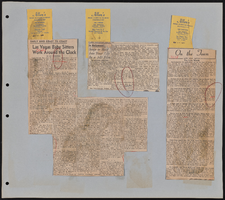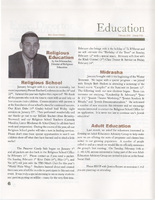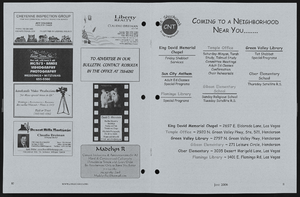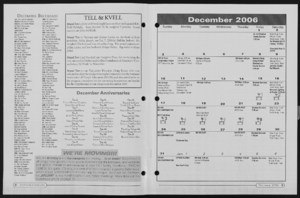Search the Special Collections and Archives Portal
Search Results
Brian Knudsen (City of Las Vegas Councilman) oral history interview conducted by Kelliann Beavers: transcript
Date
Archival Collection
Description
From the Lincy Institute "Perspectives from the COVID-19 Pandemic" Oral History Project (MS-01178) -- Elected official interviews file.
Text

Transcript of interview with Stan Irwin by Cork Proctor, October 24, 2003
Date
Archival Collection
Description
Stan Irwin shares details of his background, family, and early show business experiences. His life story spans many decades and includes attending NYU, doing stand-up comedy, flying during WWII, working at Club Bingo in Las Vegas, and building up the entertainment at the Sahara Hotel. Mr. Irwin comments on many aspects of the Las Vegas entertainment scene. He recalls many headliners that he worked with and shares anecdotes about several. The Beatles, Johnny Carson, Dinah Washington, Billie Holliday, Lena Home, and Pearl Bailey are just a few of the many outstanding performers that he brought to Las Vegas. Stan offers comments on racism in Las Vegas thirty and forty years ago, and gives his opinions on the Mob, Howard Hughes, prostitution, and dress codes in the fifties and sixties, among other things. He recalls how Las Vegas looked in the early days, mentions a cardiovascular health project for children that he's involved with today, and gives a little insight into staying fit at eighty-plus.
Text

Michael Green oral history interview: transcript
Date
Archival Collection
Description
Oral history interviews with Michael Green conducted by Barbara Tabach on February 26, 2018 and April 04, 2018 for the Southern Nevada Jewish Heritage Project. In the first interview, Green discusses his family background and growing up in Las Vegas, Nevada. He talks about his Jewish ancestry and the significance of religious communities in Las Vegas. In the second interview, Green discusses the growth of the Jewish community in Las Vegas, and the history of the Jewish heritage in Southern Nevada.
Text
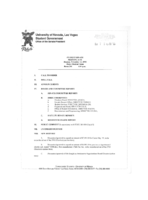
Meeting minutes for Consolidated Student Senate University of Nevada, Las Vegas, November 13, 1995
Date
Archival Collection
Description
Text
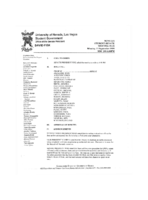
Meeting minutes for Consolidated Student Senate University of Nevada, Las Vegas, September 13, 1999
Date
Archival Collection
Description
Text
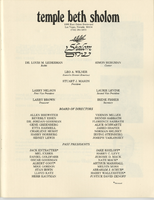
Program from event commemorating retirement of Leo Wilner as Executive Director of Temple Beth Sholom, 1984
Date
Archival Collection
Description
Program booklet for the testimonial dinner held for Leo Wilner's retirement includes dedications from colleagues and friends.
Text

